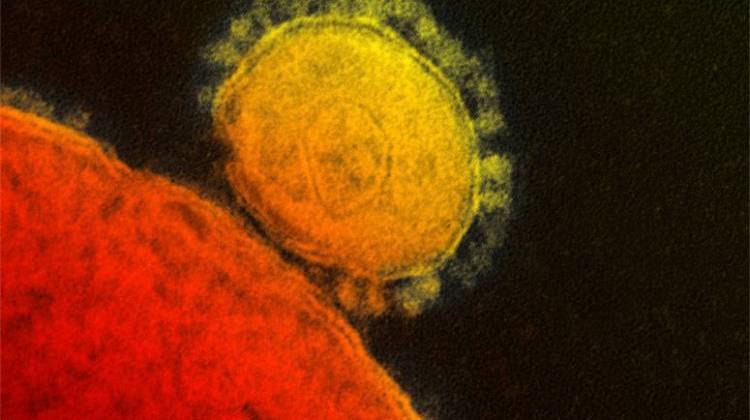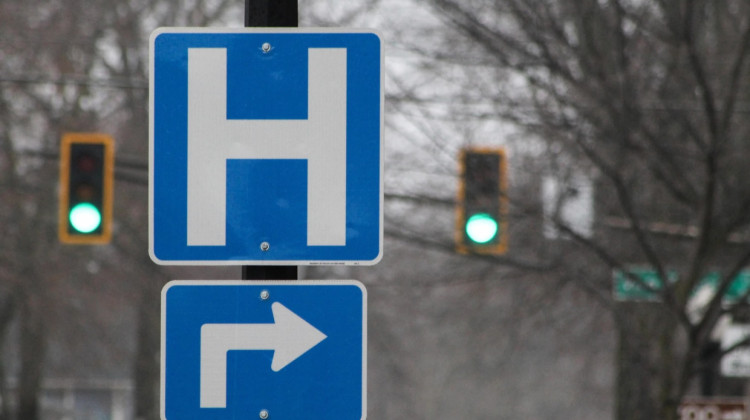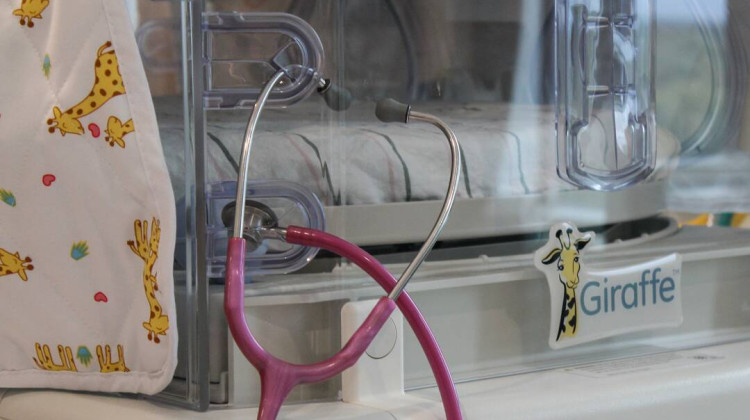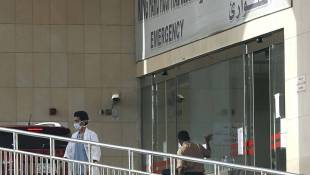Updated at Friday at 6:30 p.m.
Community Hospital in Munster, Ind. has issued a statement confirming that the patient is being treated there.
"In light of federal privacy regulations, we can only confirm that the patient is in good condition," the hospital said in the statement.
Back to our original post
A person who traveled from Saudi Arabia is being treated in Indiana for Middle East Respiratory Syndrome, or MERS.
It’s the first case of the disease in the United States.
The infected patient traveled on April 24 from Saudi Arabia to London to Chicago, then took a bus from Chicago to Indiana, and started experiencing symptoms on Tuesday.
The individual, who is a health care provider in Saudi Arabia, went to the hospital Wednesday. The Centers for Disease Control confirmed the test results for MERS, Friday.
There are no reports of other ill patients and Assistant Surgeon General Anne Schuchat says the investigation is "very active."
"We are approaching this with an abundance of caution," she said. "And so, assuring that we notify contacts through the conveyances that the patient was on and those close contacts in the health care facility or family is really being taken out of an abundance of caution."
The person is isolated in stable condition, requiring oxygen support. Schuchat says the individual is getting excellent care in Indiana, but would not specify in what city or hospital.
The Centers for Disease Control is not releasing the name of the patient, or the airline and bus line the patient used to travel.
The MERS CoV infection is confirmed in 262 people in 12 countries by the World Health Organization. Ninety-three of those people have died.
All MERS cases have been linked to six countries in or near the Arabian peninsula.
"When there is a new infection like this, about which little is known, it can be very important to learn as much as possible, quickly, so that we can improve our guidance and our protocols," said Schuchat. "I think this particular situation is one where we really hope to be able to refine the guidance that we give based on additional information gained in the first several days."
photo courtesy of National Institute of Allergy and Infectious Diseases
 DONATE
DONATE







 View More Articles
View More Articles

 Support WFYI. We can't do it without you.
Support WFYI. We can't do it without you.